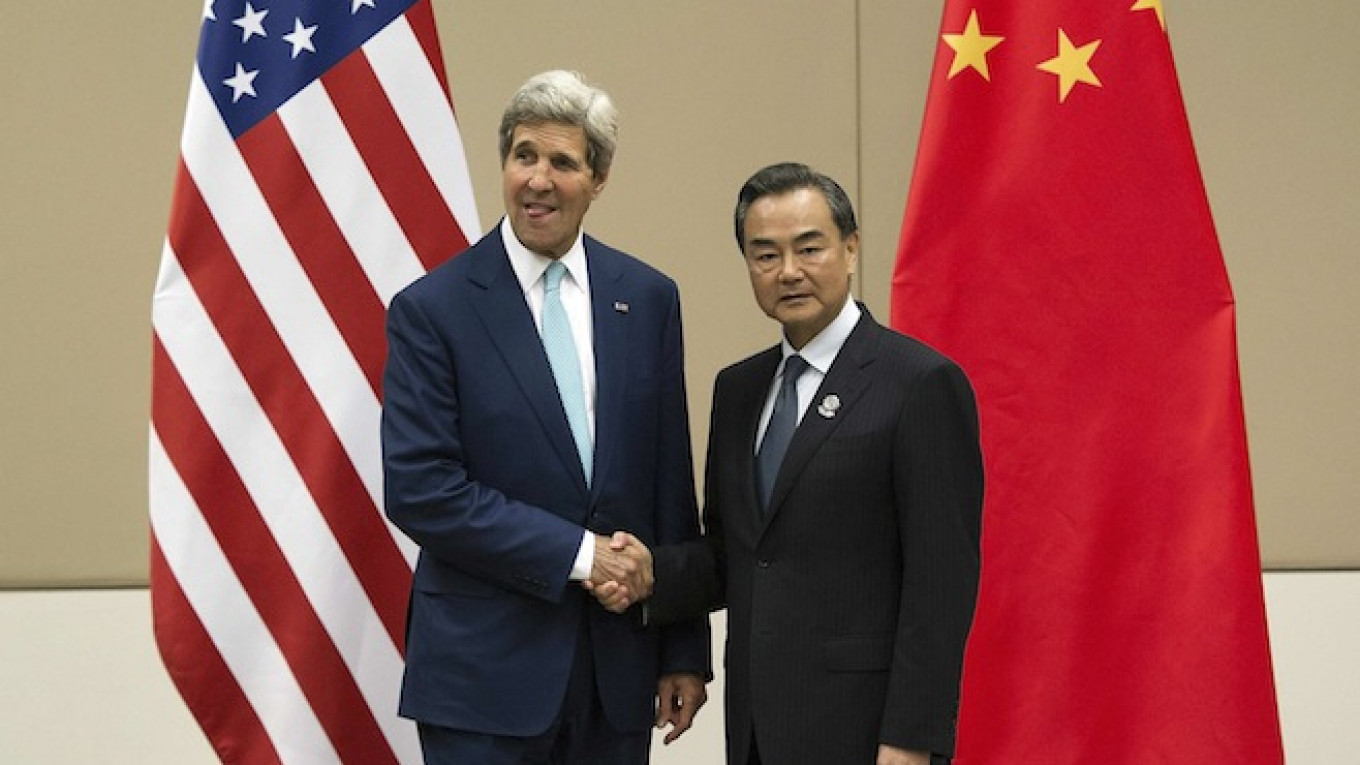The United States is trying to persuade China to impose sanctions against Russia over the ongoing conflict in Ukraine, Washington's sanctions point man has said.
In an interview with Lithuanian news portal Alfa.Lt published Thursday, U.S. State Department Coordinator for Sanctions Policy Daniel Fried said Washington's campaign to drum up support for sanctions on Russia had led them to South Korea and Singapore, adding, "we had consultations with China and will continue our consultations."
So far, the U.S. has been joined by the European Union, Canada Japan, Australia, New Zealand, Norway and Switzerland in imposing various degrees of economic sanctions on Moscow to force the Kremlin to drop what they see as its aggressive policy in Ukraine.
Chinese officials have repeatedly said they think the sanctions regime is not effective.
"We hope that the sides will solve the existing issues by the means of dialogue and negotiation, and that economic and trade cooperation will not be paralyzed," official representative of China's Foreign Ministry Khun Lei said in July statement cited by ITAR-Tass.
Likely soon to overshoot the U.S. and become the world's biggest economy, China's reluctance to sanction Russia undermines the West's leverage against Moscow. To be as effective as possible, sanctions have to be multilateral, Fried said — "They can work when the world's leading centers of economic power are more or less united."
Fried said he could not estimate the current effect of sanctions on Moscow's policy in Ukraine, but he stated that the State Department is constantly looking for ways to apply more pressure.
The Office of Foreign Asset Controls, or OFAC, which administers and enforces trade sanctions against foreign states, organizations and individuals is "always looking at potential new targets for sanctions," he said.
See also:
Russia Joins Hands With China For Anti-Terrorist Chopper Drills
A Message from The Moscow Times:
Dear readers,
We are facing unprecedented challenges. Russia's Prosecutor General's Office has designated The Moscow Times as an "undesirable" organization, criminalizing our work and putting our staff at risk of prosecution. This follows our earlier unjust labeling as a "foreign agent."
These actions are direct attempts to silence independent journalism in Russia. The authorities claim our work "discredits the decisions of the Russian leadership." We see things differently: we strive to provide accurate, unbiased reporting on Russia.
We, the journalists of The Moscow Times, refuse to be silenced. But to continue our work, we need your help.
Your support, no matter how small, makes a world of difference. If you can, please support us monthly starting from just $2. It's quick to set up, and every contribution makes a significant impact.
By supporting The Moscow Times, you're defending open, independent journalism in the face of repression. Thank you for standing with us.
Remind me later.






